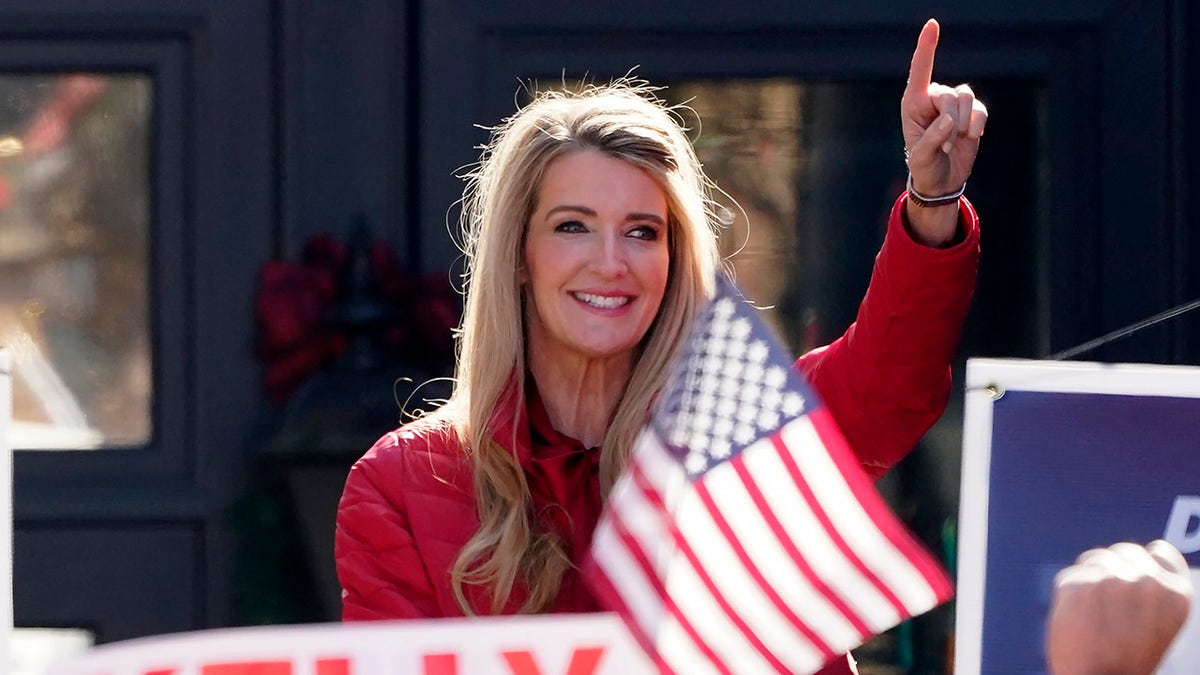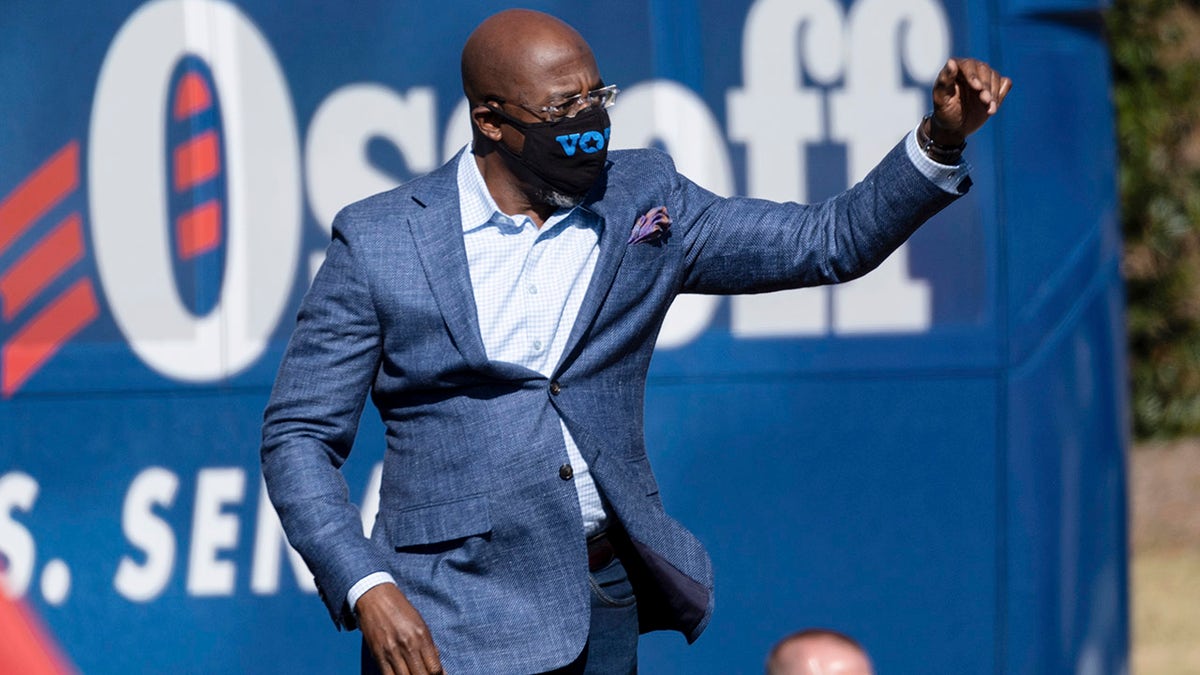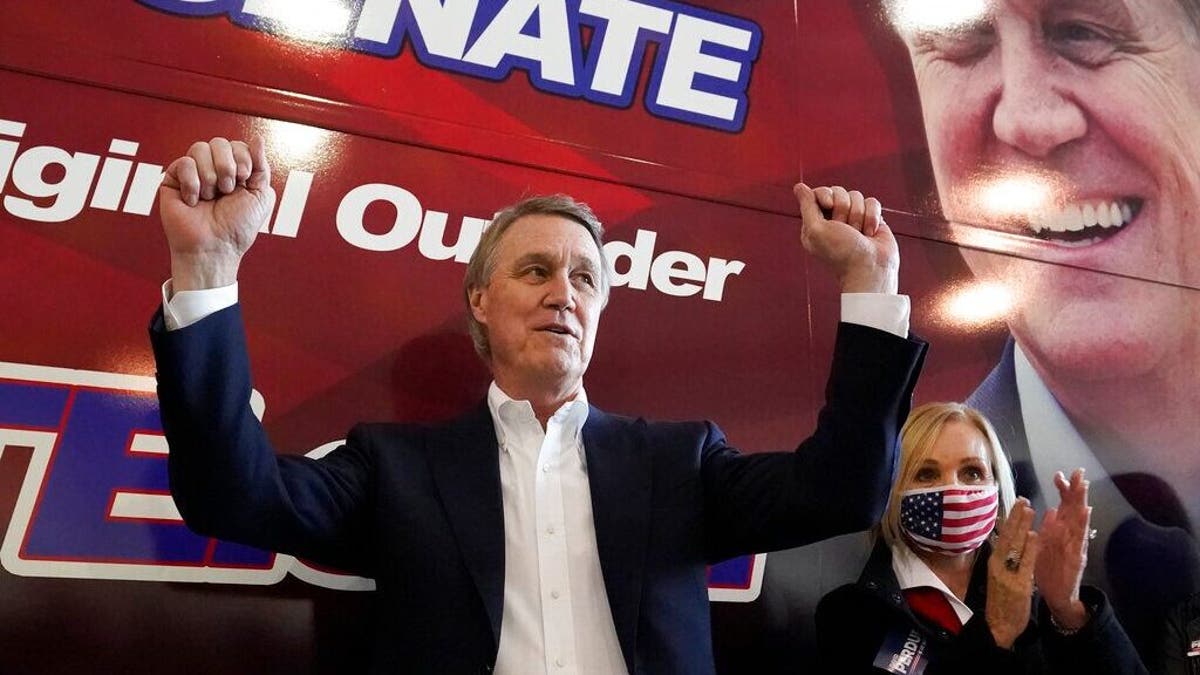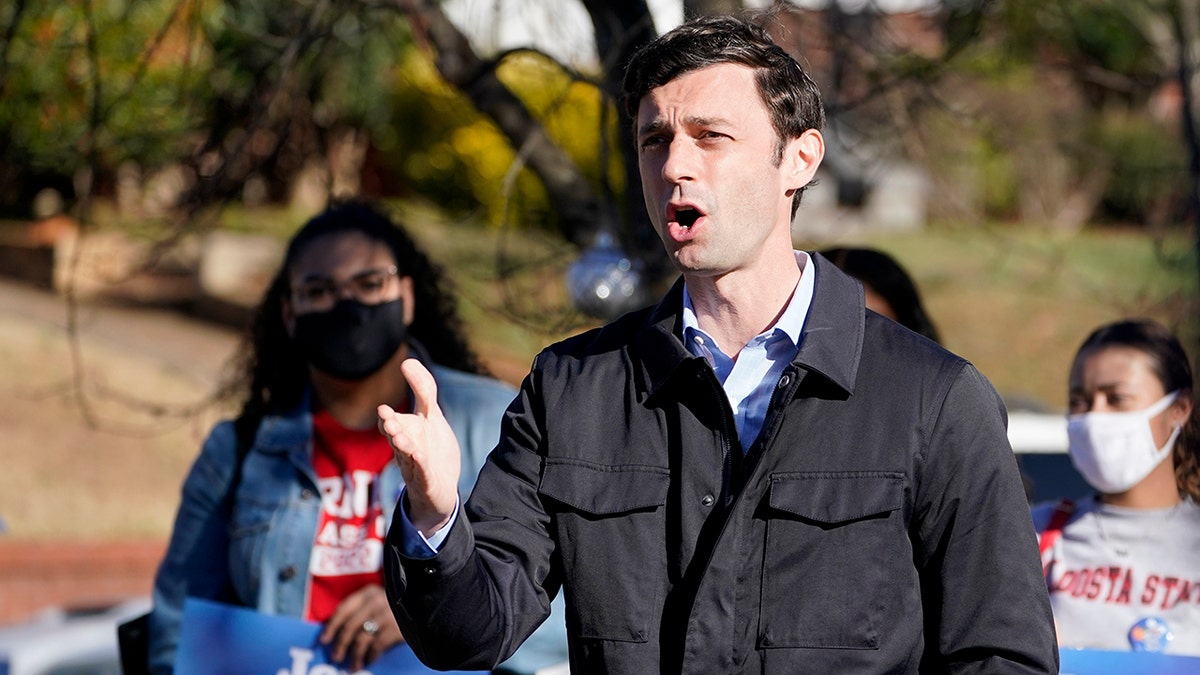Kemp: Don't be distracted by Trump phone call news and focus on winning Georgia runoffs
Georgia Gov. Brian Kemp discusses the closing days of the Georgia Senate runoffs.
Voters in Georgia are headed to the polls on Tuesday for the culmination of a very long election year, casting the ballots that will decide the control of the U.S. Senate for at least the next two years.
After no candidate in either of Georgia's two U.S. Senate elections got more than 50% of the vote on Nov. 3, the top two candidates in each race moved on to the Jan. 5 runoffs. Republican Sen. Kelly Loeffler is facing Democrat Raphael Warnock for her seat. Meanwhile, Republican David Perdue, whose Senate term expired on Sunday, is fighting to retain his seat against Democrat Jon Ossoff.
Typically, voters are not in the position to know whether their senators or members of Congress will control the balance of power in either chamber when they cast their votes. There are usually too many states and too many possible outcomes for that.
Not in this case. Republicans gained control of 50 Senate seats in November while Democrats won the presidency and the vice presidency, leaving up for grabs just Georgia's two Senate seats.

Sen. Kelly Loeffler, R-Ga., gestures as she speaks during a campaign rally, Monday, Dec. 21, 2020, in Milton, Ga. (AP Photo/John Bazemore)
If Republicans win even one of the Georgia races, they'll hold a Senate majority for the next two years and have an effective veto over President-elect Joe Biden's agenda. If Democrats sweep both races, however, the Senate will be at an effective 50-50 tie on party lines. Vice President-elect Kamala Harris would then be able to break ties on party-line votes.
GEORGIA SENATE RUNOFFS BRINGING ON A 'GREAT DEAL OF URGENCY' AMONG DEMS: STACEY ABRAMS
The candidates themselves have made the stakes of the election clear, with Ossoff saying he plans to "take power away from Mitch McConnell" and Loeffler emphasizing that "everything is on the line" in Georgia.
"It really feels like we're at the center of the political universe and will be until Jan. 5," Maria Saporta, the chair of the Atlanta Press Club Debate Committee, told Fox News before the debate between Loeffler and Warnock in early December.
Fox News Channel and FoxNews.com will cover the results of the runoff elections in real time Tuesday, with pivotal analysis, context and perspective.
Here's what to know about the Georgia runoffs.
They've been expensive
The Georgia runoffs have been some of the most expensive two months of nonpresidential politics in American history. The total ad spending in the race has reached nearly $500 million.
To put that in perspective, that's about the amount of spending of an average presidential campaign.

Democratic U.S. Senate challenger the Rev. Raphael Warnock during a rally Monday, Dec. 21, 2020, in Columbus, Ga., with Vice President-Elect Kamala Harris and fellow Democratic U.S. Senate challenger Jon Ossoff. (AP Photo/Ben Gray)
The 2012 Mitt Romney presidential campaign spent nearly $450 million. The 2016 Hillary Clinton campaign spent about $585 million. The Trump 2020 campaign spent just under $775 million, which is similar to what both Obama campaigns spent.
But the Georgia spending is all concentrated in one state, over the course of two months.
PERDUE ON GEORGIA SENATE RUNOFFS: TRUMP RIGHT THAT 'SOMETHING UNTOWARD' HAPPENED IN ELECTION
Veteran Georgia-based Republican consultant Chip Lake told FOX Business that the astronomical ad spending’s "unlike anything I’ve ever seen because it’s so sustained. Every week since Thanksgiving has been what the last week before a general election normally is."
Notably, the approximately $500 million total does not include get-out-the-vote efforts by campaigns and parties. So the actual total is higher.
Poll closing time
Polls in Georgia close at 7 p.m. That means voters who are in line by that time can vote. Voters may also drop their absentee ballots off at a drop box by 7 p.m.
Turnout is key
There has been very little in the way of efforts to persuade voters in Georgia to vote for one side or the other, or to convince independents to come to one side or the other from the middle.

Republican candidate for Senate Sen. David Perdue and his wife, Bonnie, react during a campaign stop at Peachtree Dekalb Airport Monday, Nov. 2, 2020, in Atlanta. (AP Photo/John Bazemore)
Like the presidential election, the Georgia runoffs are turnout elections, with each side running constant negative ads against the other and making efforts to energize their base.
"We don't go in to register voters or to convince anybody there, we just want to be sure that we get our people out to vote," Joan Reynolds, the chair of the Mighty Alabama Strike Force, which has had volunteers in Georgia since November, told Fox News in an interview.
LOEFFLER VS. WARNOCK ON HEALTH CARE: WHERE THEY STAND
The various campaigns and a bevy of other outside groups have taken that approach to the runoffs as well.
That means how many voters show up to the polls and where it is they show up will be key for Democrats and Republicans. Democrats tend to vote by mail and vote early more than Republicans, and that is showing up in the numbers of votes reported so far.
If rural, more conservative areas see a large surge in turnout on Election Day, then that will be a key for Loeffler and Perdue to win. If the turnout among those groups is closer to that of urban areas, it will be a good sign for Ossoff and Warnock as they will likely lead in votes not cast on Election Day.
Results may take time
Georgia was one of several states where it took multiple days to count ballots during the general election. This was because of a combination of the large volume of people voting absentee -- those ballots are more physically demanding to count than standard ballots -- and the close margin of the presidential race.

Democratic nominee for U.S. Senate from Georgia Jon Ossoff speaks after voting early in Atlanta on Tuesday, Dec. 22, 2020. For the second time in three years, Ossoff is campaigning in overtime. The question is whether the 33-year-old Democrat can deliver a win in a crucial Jan. 5 runoff with Republican Sen. David Perdue. (AP Photo/John Bazemore)
PERDUE VS. OSSOFF ON HEALTH CARE: WHERE THEY STAND
Both Georgia runoffs are likely to be close as well, so there may not be a clear winner on election night.
Everyone's interested
President Trump, Vice President Mike Pence and Biden all rallied in Georgia on Monday. Harris rallied in Georgia Sunday.
The campaigns have been supported by a who's who of high-profile politicians on each side, including Sens. Rick Scott, R-Fla.; Marco Rubio, R-Fla.; Ted Cruz, R-Texas; Bernie Sanders, I-Vt.; Rep. Alexandria Ocasio-Cortez, D-N.Y.; Biden transportation secretary nominee Pete Buttigieg and more.
A number of Hollywood stars have also backed the Democrats. Meanwhile, singer Lee Greenwood played in Georgia at an event supporting Perdue and Loeffler.
Biden agenda at stake
The Senate majority will play a major role in the upcoming two years. Biden's agenda, among other things, includes a public health insurance option, rolling back the 2017 tax cuts, further coronavirus aid, rolling back Trump immigration policies and other executive orders, and ambitious environmental programs.
As president, Biden will also have the opportunity to appoint federal judges, including Supreme Court justices. He can also pick crucial executive appointees who will shape federal policy.
A Republican-controlled Senate could stand in the way of many of those priorities, forcing Biden to moderate his policies so they are able to make it through the Senate.
CLICK HERE TO GET THE FOX NEWS APP
Many Democrats have also promoted policies like the Green New Deal, court-packing and ending the legislative filibuster. These would likely have a hard time even under a Democrat-controlled Senate, as moderate Democrat Sen. Joe Manchin of West Virginia has said he will not abide by such ideas, sparking a public feud with Ocasio-Cortez.
But David McIntosh, the president of the conservative Club for Growth, which has campaigned for Loeffler and Perdue, said he does not trust Manchin to be a buffer in that situation.
"You've got to worry about it, right, because if he's the sole guy stopping them, the pressure on him from his friends and former allies is going to be enormous," McIntosh said. "So I think a much better stopgap would be to keep the Republican majority in both of these races."
Fox News' Paul Steinhauser contributed to this report.






